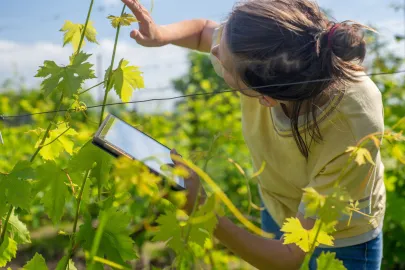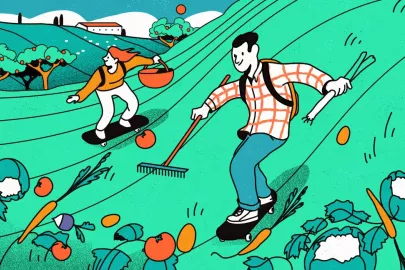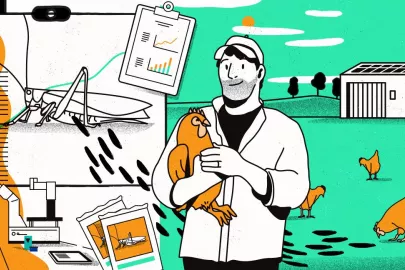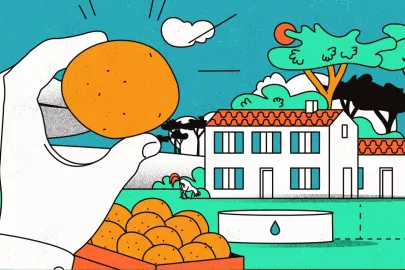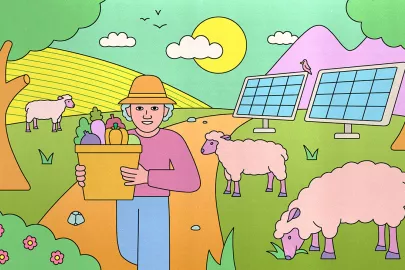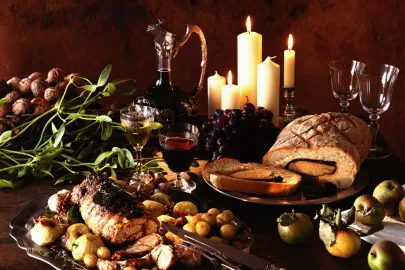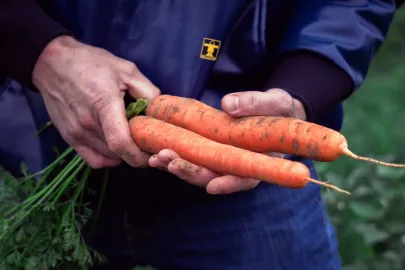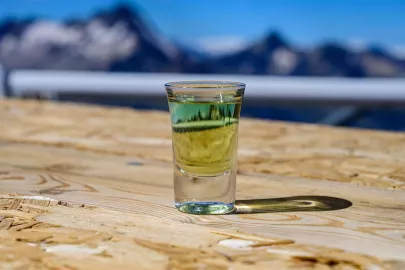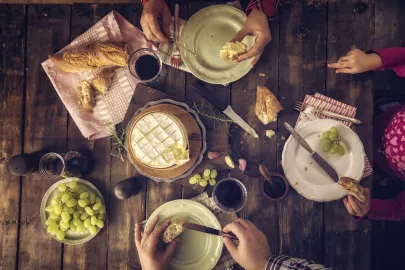Green lines: Summering in the pastures - a tradition with benefits
Pastoralism is an age-old livestock feeding practice, whereby all or part of the herd’s dietary needs are met by releasing them to graze on alpine pastures and mountain trails, without recourse to grains or supplements. But there is more to this practice than tradition; it’s a commitment to nature, too.
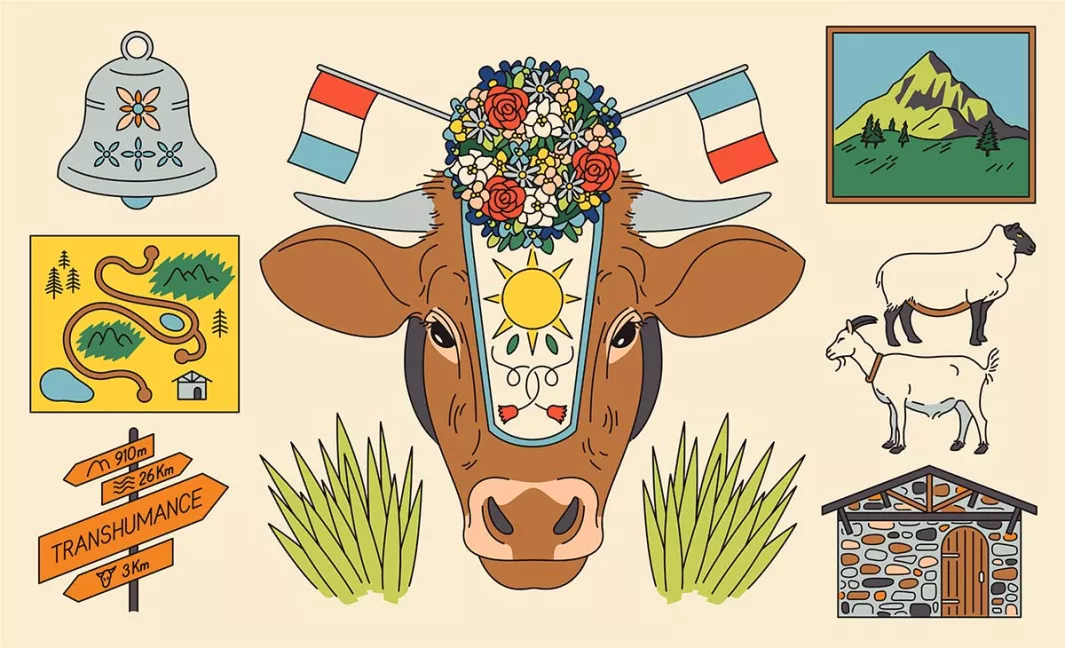
I will always remember my first meeting with Emmanuel Lafaye. I visited him and his horticulturalist partner at their farm, a short distance from Arles, in the south-east of France. With his little glasses screwed onto his nose and his gentleman-farmer air, the shepherd had seemed rather quiet during this first meeting. Later, he confided in me that he hated the city and preferred the company of his livestock to that of human beings. Each year, without fail, he waits to be able to “go up there” with his flock of meat sheep. As the days grow milder and the temperatures begin to rise, the grasses dry up in the plain. That’s when Emmanuel crosses the Luberon massif and leads his Arles Merinos to their summer quarters in the Dévoluy mountains, in the region of Hautes-Alpes de Provence-Alpes-Côte d’Azur. The flock is on the move from May to October. “The hotter the summer gets, the higher we have to climb in order to find fresh grass. In Dévoluy, beyond 1,800 meters the mountain pastures are land that we rent from the municipality. Their history is closely linked to the history of agriculture. They start at the point where our predecessors could no longer grow crops.” The pastures and mountain trails provide a living for 60,000 farms, which is 18% of livestock farms in France (cows, sheep, goats, and horses) and 22% of the total number of animals.
This is also the case for Maina Chassevent, a farmer in her thirties who, every six months, takes her flock of Basco-béarnaise sheep to graze on the summer pastures at an altitude of 1,500 meters, before wintering again on the Basque farms below. “The summer is the only time when I am settled in a fixed location. From May to October, I live in a cayolar, a small stone house accessible by road. ” Pastoralism is the main source of agricultural income in arid, cold and mountainous areas all over the world. The relationship between man, animal and nature is the cornerstone of this livestock farming system. It depends on well-adapted breeds, with a good balance of hardiness and domesticity, and on the complementarity of the summer pastures meeting the needs of a herd in production, whilst the herd in turn help preserve the quality and richness of these environments and resources. “Nature abhors a vacuum. Pastoralism offers a natural way of maintaining difficult to reach areas. By passing through the area regularly, we keep the vegetation short, with fine grasses and flowers. There is little doubt in my mind that sheep have a positive impact on biodiversity. Transhumance continues the story of mankind in nature and is a necessity for those who wish to feed their livestock in a self-sufficient manner. If I did not go up in summer, I would have to feed my animals with grains for part of the year, something I refuse to do”, concludes Emmanuel emphatically, as he prepares to climb even higher and find his little hut. A route worth taking.
Contributor

Editor

